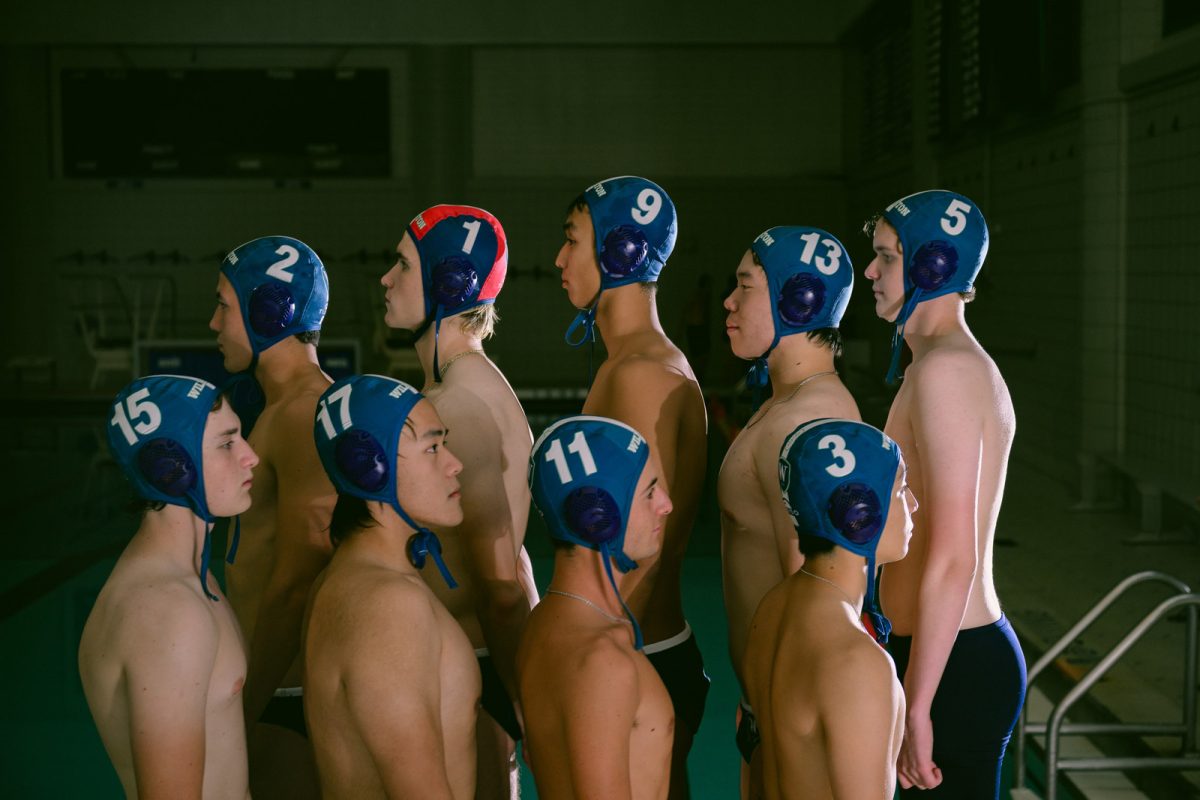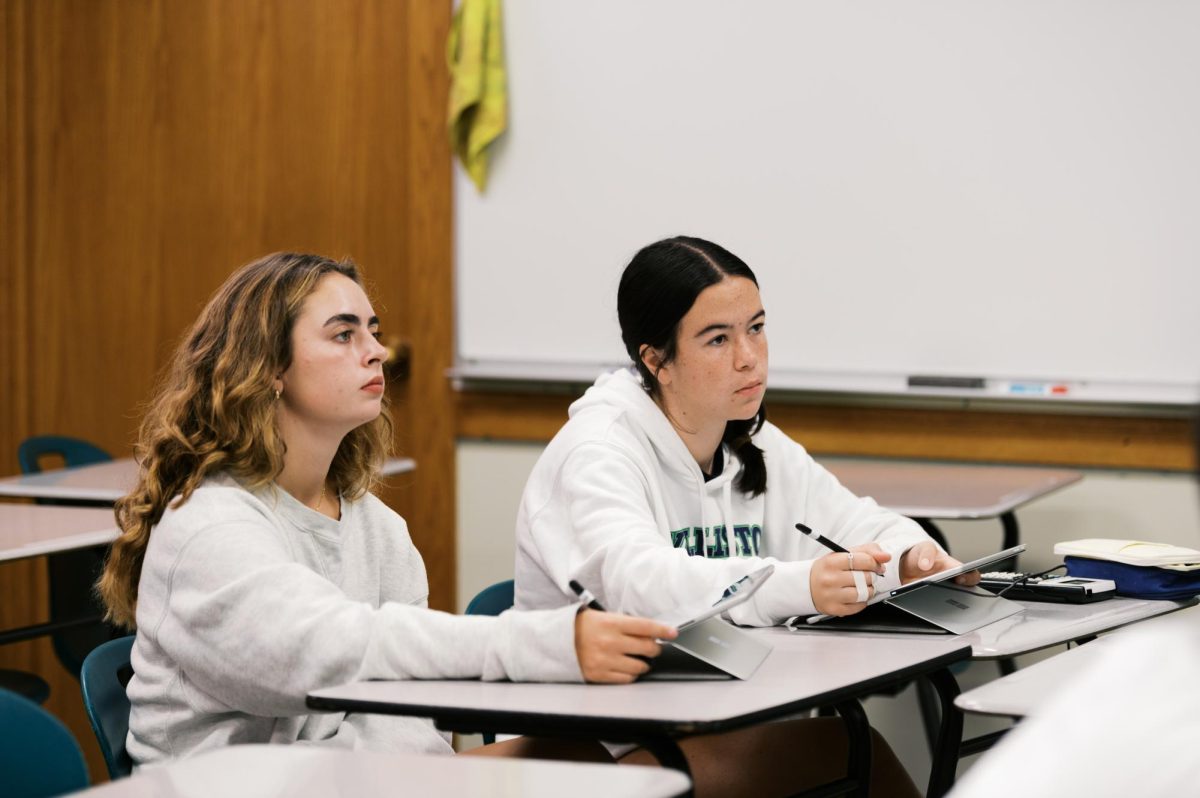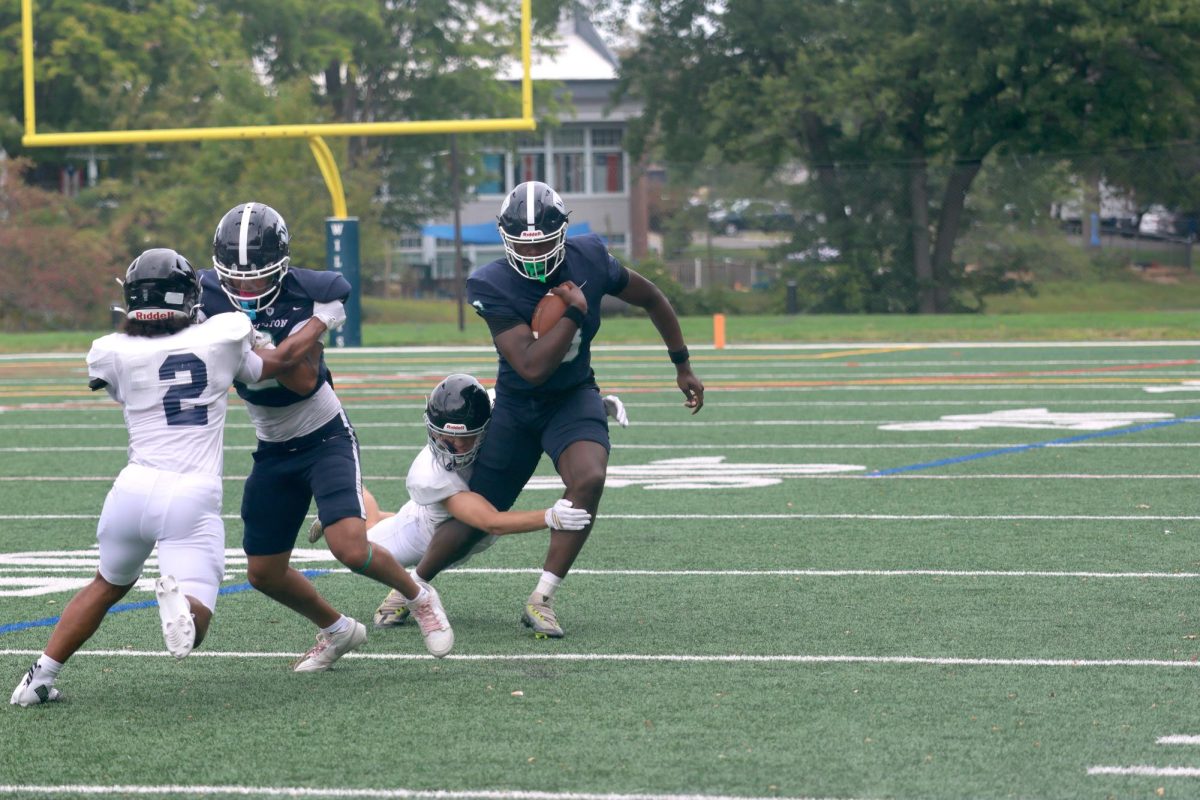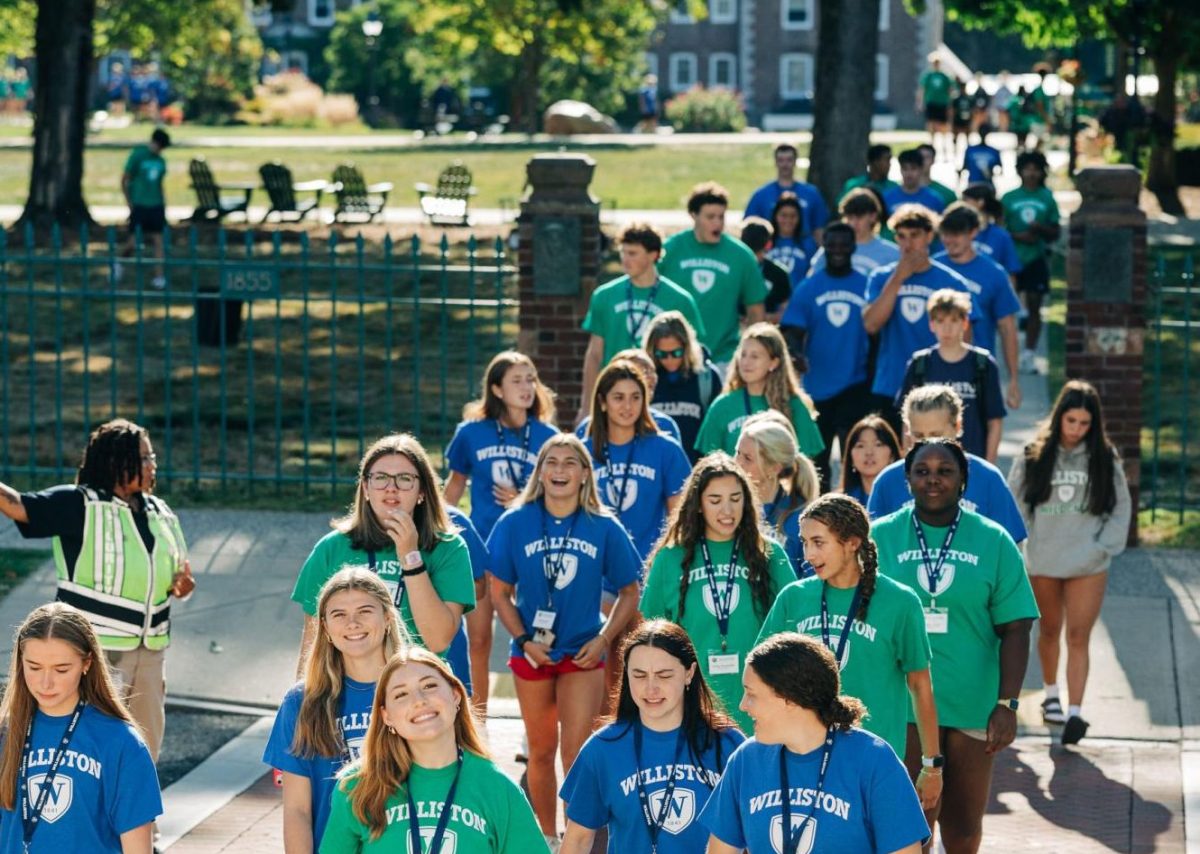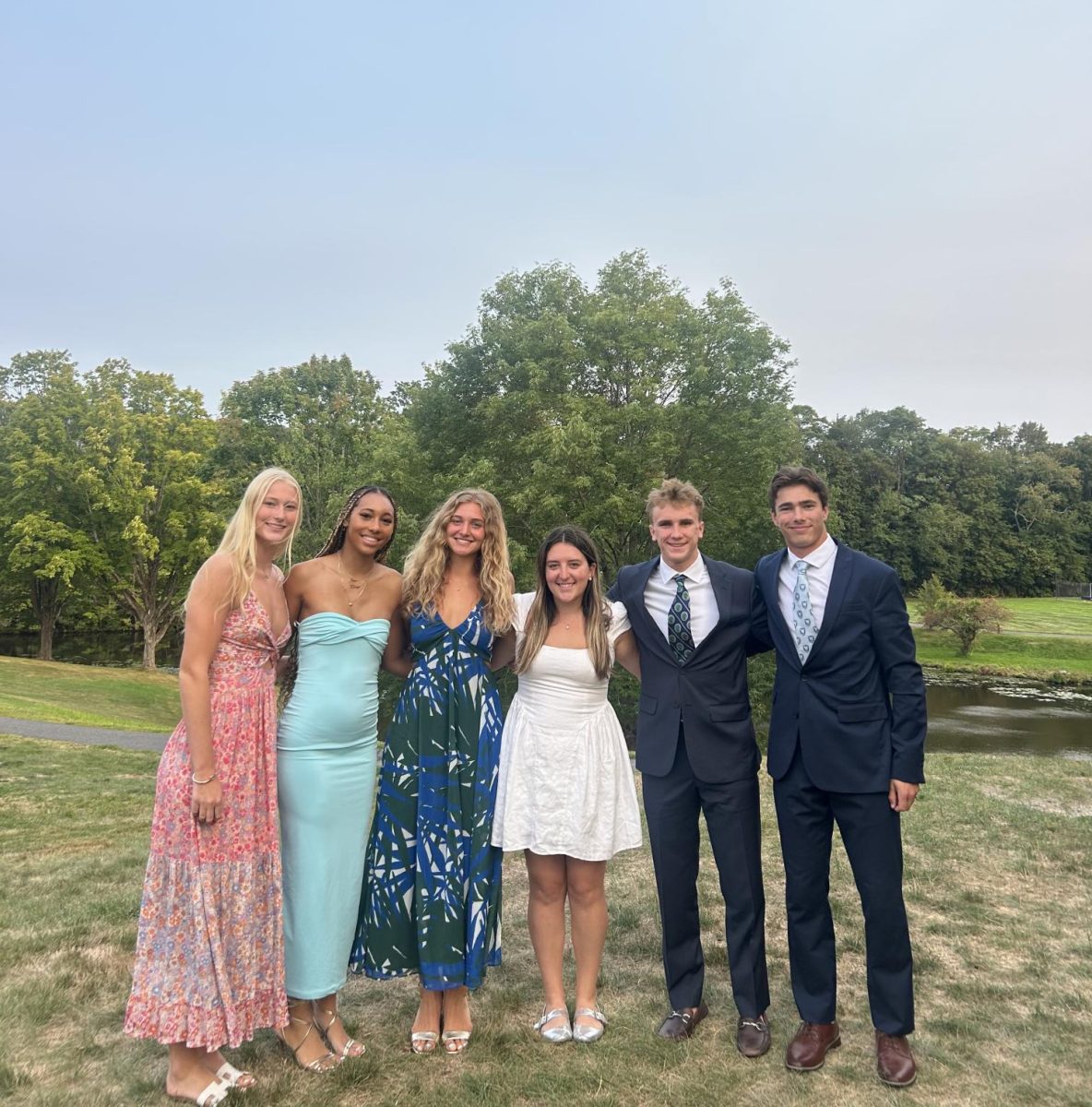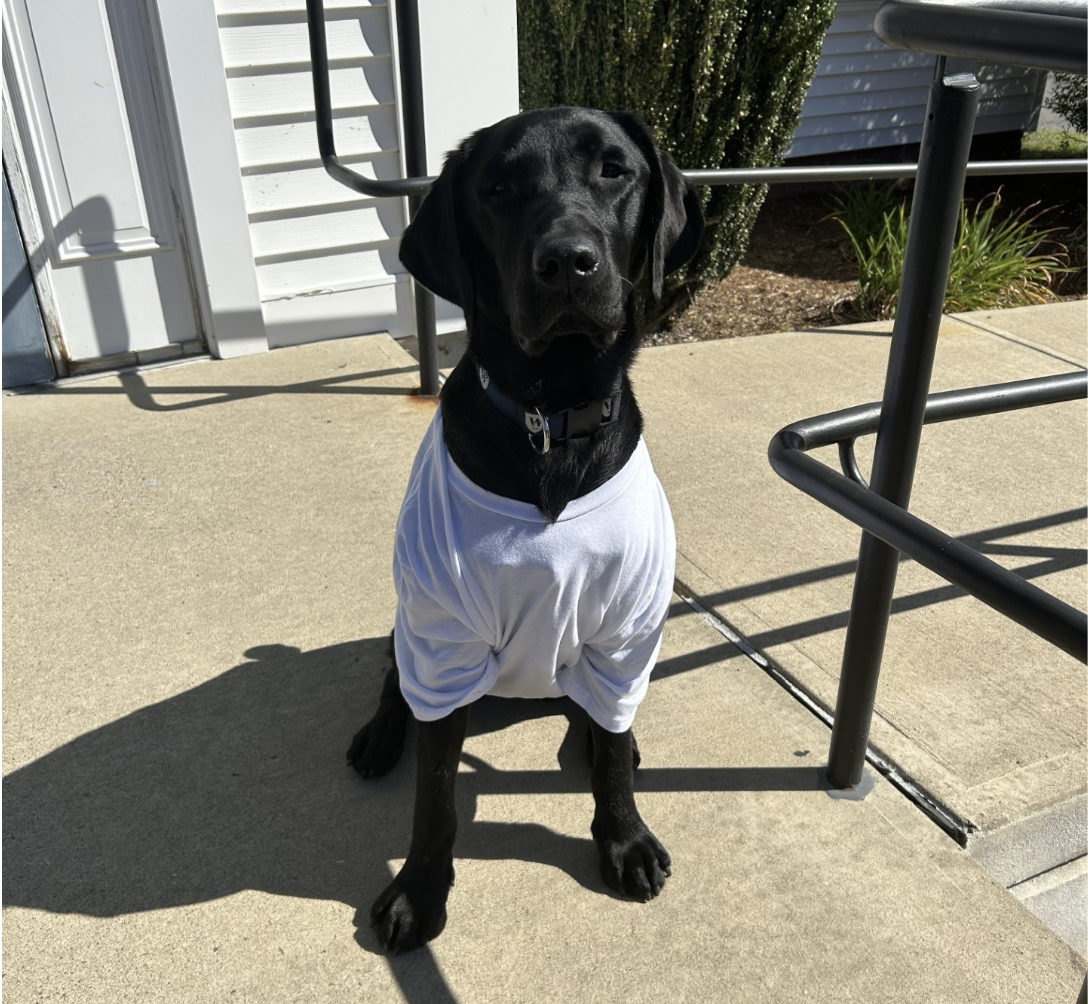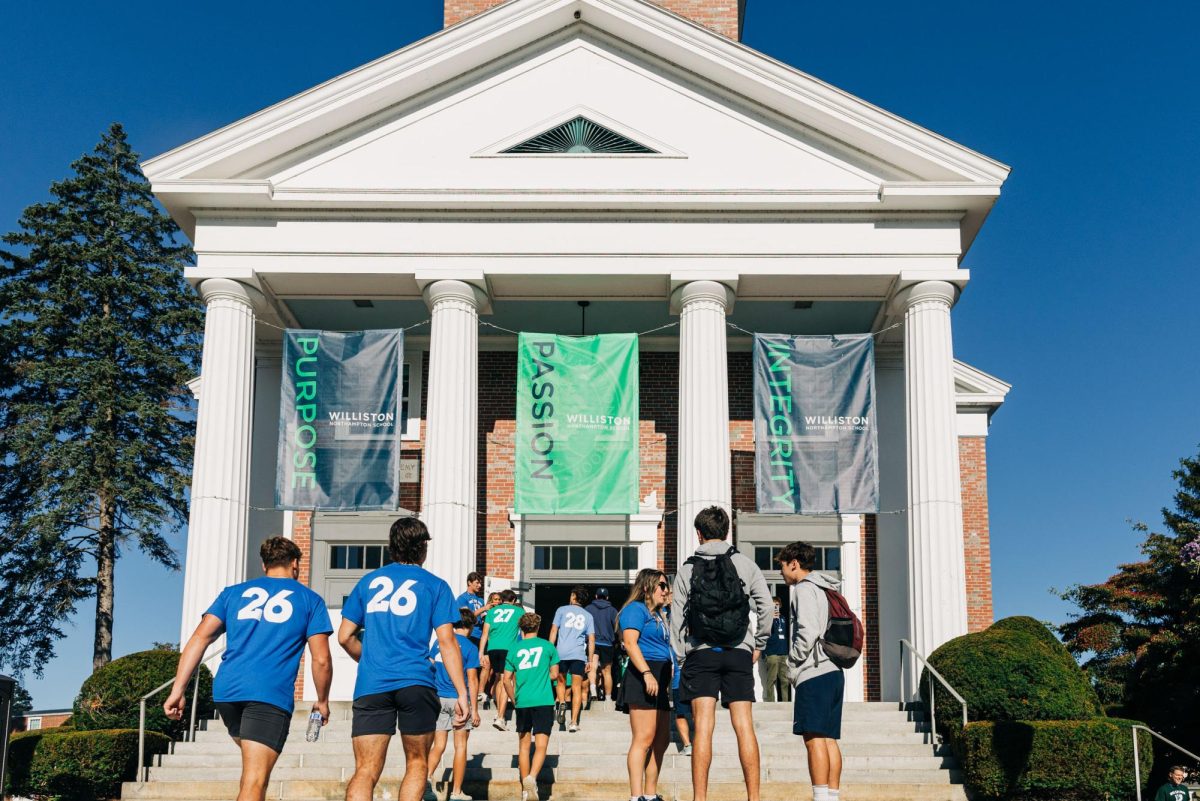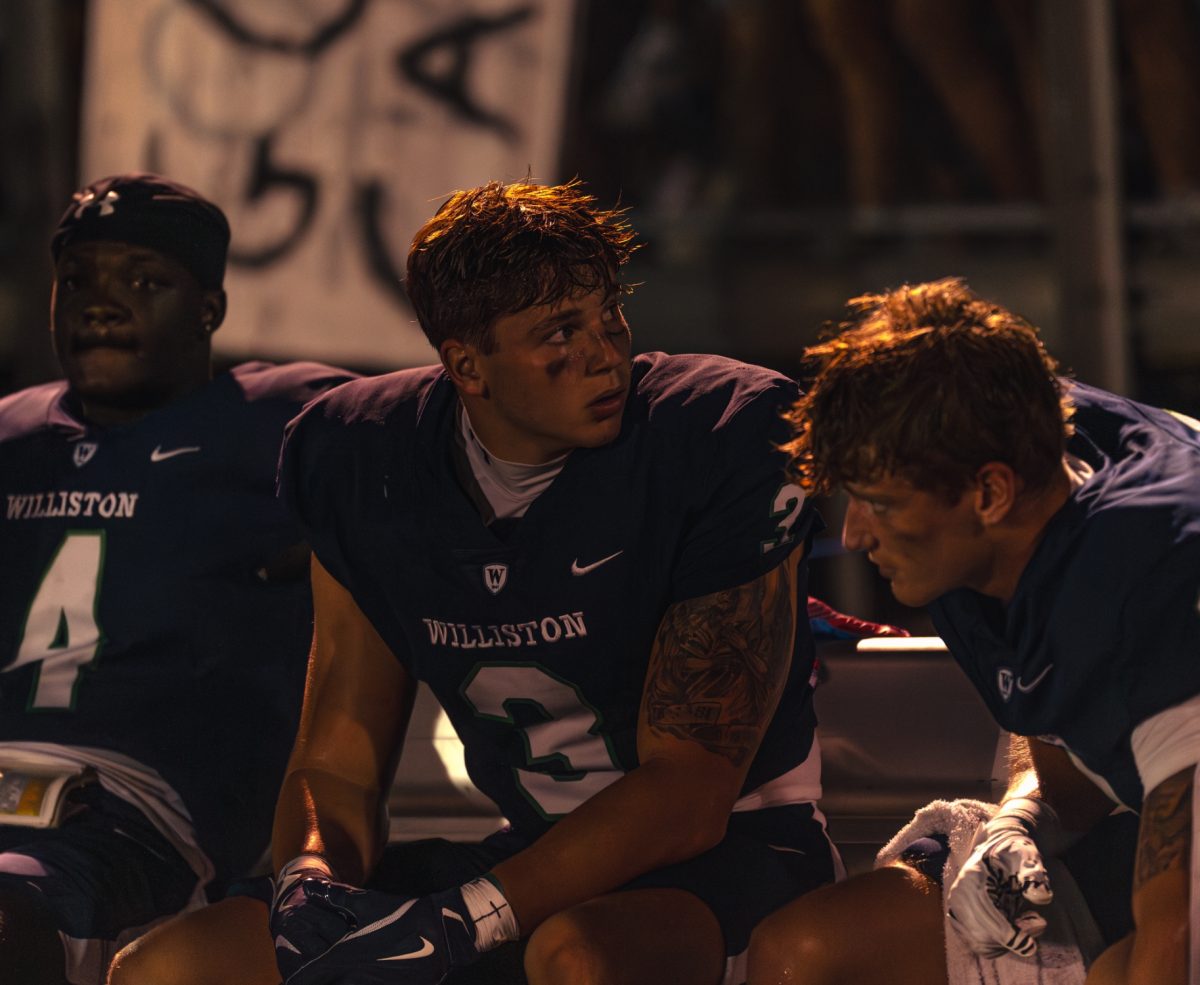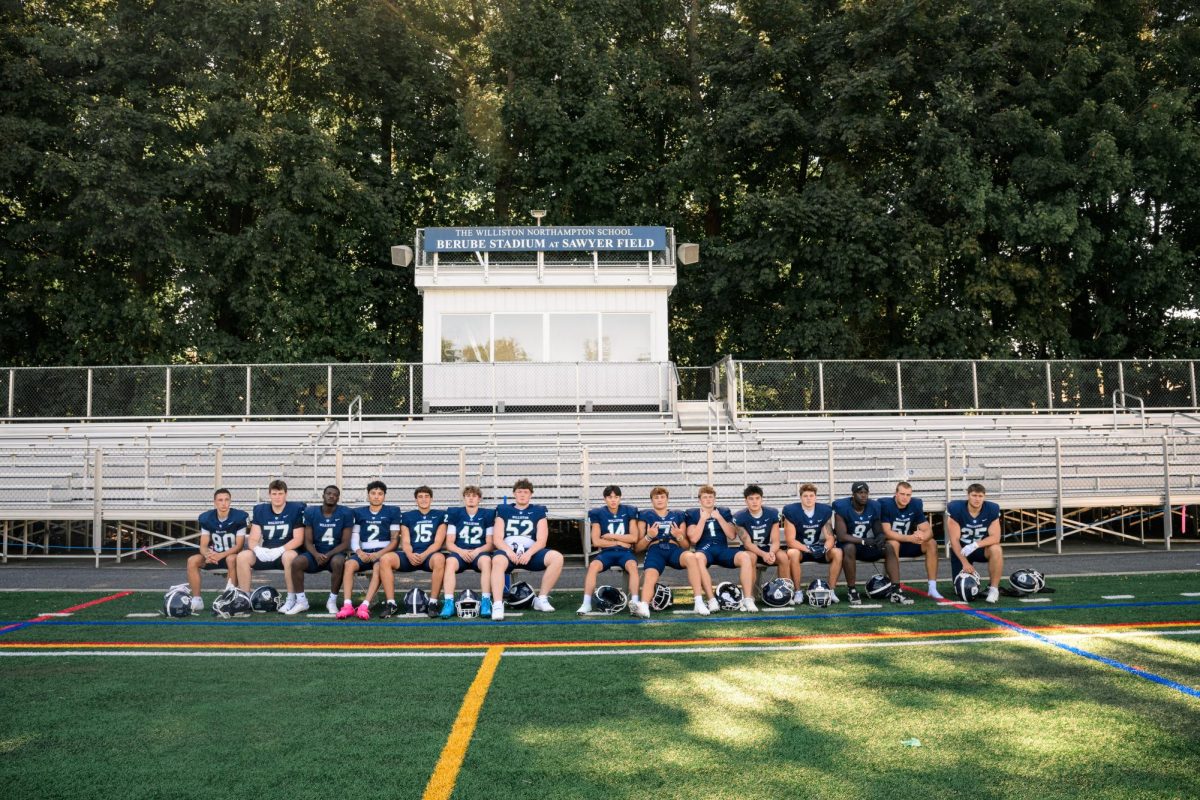“It’s ridiculously impossible.”
That sentiment, from senior goalie Connor Graff ’26, pretty much sums up the experience of playing water polo. For the uninitiated observer, or, say, a visitor to early season practice intent on learning about the game and, specifically, how Williston plays it, the sport is confusing. And it looks exhausting. To say the least. The constant swimming and treading water would be enough to tire out the hardiest lungs and muscles.
But the difficulty of the sport isn’t stopping anyone. The team is hoping to reach the same heights as last year, when it made the NEPSAC championship tournament but, unfortunately, lost to a historically tough Exeter in the first round.
And things are looking up already. Although they lost to Exeter on Sept. 20, they beat Hopkins, 12-8.
Graff attempted here to explain, from his perspective as goalie, the system he employs to continuously tread water while also getting balls thrown at him at great speed and considerable pain. He outlined a specific “egg beating” way of moving his legs while keeping his upper torso out of the water and using his hands to help. I gave him a look which must have expressed how difficult this seems, and he laughed. It was the laugh of someone who knows his sport is brutal and yet loves it.
“Yeah, it’s just constant movement,” he said. “It’s terrible.”
Also quite impossible, it’s worth noting, is communication. With players, with coaches, basically anyone on the pool deck during practice. It’s visceral, how loud everything is. There are 20-plus teenagers swimming laps. There’s the industrial exhaust system, the constant pop of the ball slamming against the pool surface, continuous splashing, everybody screaming in a cavernous room with terrible acoustics and massive echo. It’s not an environment for subtlety.
And yet, Coach Bill Berghoff calmly stands on the deck overseeing the team. It’s his 15th year doing so for Williston, where he coaches both the boys and girls teams, and his 40th year in a row: he started in the fall of 1986 and hasn’t taken a season off since.
Noting his composure in this particular environment—it’s also stiflingly warm—I felt compelled to ask what keeps him coming back.
“To see these kids go from nothing to a lot over time—it’s just great,” he said, his characteristic good humor on display.
Both Berghoff and assistant coach Teddy Schaffer noted that all the kids in the pool, from seventh graders to seniors, had never played water polo before Williston.
“They didn’t know anything,” Berghoff said. “It’s exciting, why wouldn’t you come back to see what happens?”
I caught up with co-captains Luke Green ’26 and Jumpei Ro ’26 the following day, out of the pool. They addressed the difficulty of the sport but added another side to it, the fact that because the water polo community is so small, they often know many of their competitors. The same goes for the coaches; Berghoff said in his 40 years on the pool deck he’s coached “three of the officials we currently use, and two of the coaches at different schools.” Additionally, he went to college with a fourth and club coached a fifth.
“Come to think of it, maybe it is just that I have been around that long,” he joked.
Student athletes often choose water polo, Green and Ro agreed, on a whim, and end up loving it. Both Green and Ro, newcomers to the sport when they began at Williston, were invited this summer to participate in the Barcelona International Water Polo Academy’s summer program.
“It’s a lot of kids who didn’t have a fall sport and just need to get out energy,” Green said, adding that because of the strenuous work required, water polo is “so hard to enjoy as a beginner.”
Green added that he swam competitively, specializing in the mile and the 500-meter races, for years prior to joining Williston’s team, and “that was so much easier.”
Ro, a senior from Tokyo, nodded. “I want people to try to play water polo and see how painful it is.”
The brutality of the sport doesn’t change how they feel about playing. Even though Green jokingly admitted that “you don’t look the coolest with a [swim] cap and Speedo,” he remains passionate about the sport, and both he and Ro enjoy the camaraderie they find among their own team and in the greater water polo community as well.
I wasn’t able to make it to the games against Hopkins and Exeter, but coaches Berghoff and Schaffer confirmed a few things for me that I’d suspected: It was hot. In the bleachers and on the deck. It was just as loud as before, except now the ref’s whistle was constantly going off. Still, the boys, they said, kept swimming, kept treading water, and cheered each other on. Playing one of the most physically demanding sports, they looked like there was nowhere else they’d rather be.



